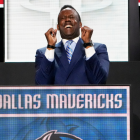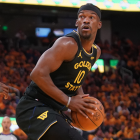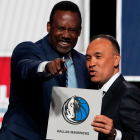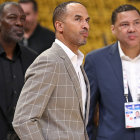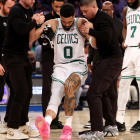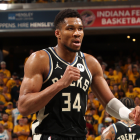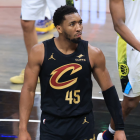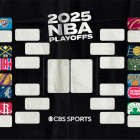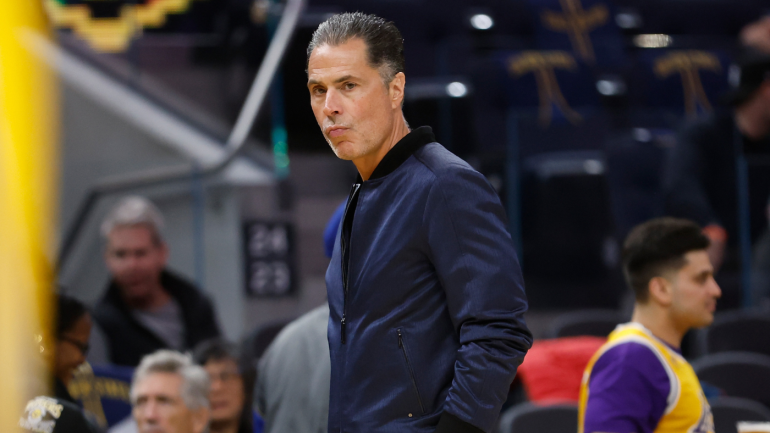
The Los Angeles Lakers had a noisy offseason, but not in ways that translated to major changes on their roster. They made waves by hiring JJ Redick, a former player and media personality with no coaching experience, as the replacement for fired head coach Darvin Ham, and then they drafted Bronny James in the second round to join his father, LeBron James, as the NBA's first father-son duo. Despite the attention these additions generated, neither represents a proven, veteran addition to the roster.
The Lakers did not add a single established NBA player to their 15-man roster this offseason. In fact, the only changes they've made to date have been the replacement of two veterans (Spencer Dinwiddie and Taurean Prince) with two rookies (James and Dalton Knecht). Thus far, they have not even been capable of clearing an extra roster spot by trading away a bench player like Christian Wood or Cam Reddish.
To make an addition of substance, the Lakers will almost certainly have to trade either their 2029 or 2031 first-round pick, and while Lakers general manager Rob Pelinka has indicated in the past that he is willing to do so under the right circumstances, they did not appear to come close to doing so this summer. At his press conference Wednesday, Pelinka indicated that while he would be willing to trade one pick for the right marginal upgrade, the standard for packaging both would be "sustainable Lakers excellence."
Rob Pelinka says the team is open to trading their two available first round picks if any deal they would be involved in can help secure "sustained Lakers excellence"
— Dave McMenamin (@mcten) September 25, 2024
What exactly does that mean? Well, it's hard to say for certain. The use of the word "sustained" indicates that youth would be a consideration. The Lakers have made significant investments in older, big-name players in the recent past that haven't panned out. Russell Westbrook is the most notable example. James is now 40, and the Lakers have to be thinking about life after his retirement. In a perfect world, the Lakers would use those picks to trade for players that could both help James now and remain useful to the team after he's gone. All offseason, the Lakers have made a point of emphasizing player development. They have a first-year coach. This is clearly a team thinking beyond the present.
But "excellence" is another important consideration here. The Lakers are obviously a franchise that measures success exclusively in terms of championships, and given their Play-In Tournament status of the past two seasons, it's hard to see a role player here or there making this team a true contender. In all likelihood, the Lakers are holding their assets to trade for a star. They've been linked to players like Donovan Mitchell and Trae Young in the past. Neither moved this offseason, and it's not clear that the Lakers would have had the assets to land a player like that even if one had been available. Eventually, the Lakers are going to need to find such a perimeter player to replace James. Even if Anthony Davis is the next face of the franchise, he is a play-finisher, not a shot-creator.
Complicating all of this are the new restrictions introduced by the new collective bargaining agreement. As a first-apron team, the Lakers cannot absorb more salary in any trade than they send out. As they are just barely below the second apron, they are also going to face issues when to aggregating salaries, as doing so locks you beneath the second apron. Making the money work on any substantial deal, especially during the season, would be very difficult.
And by all indications, the Lakers are aware of that. "The inverse of change or overhaul is continuity. I think continuity can be highly successful in sports," Pelinka said. Continuity has been in short supply in Los Angeles during the Pelinka era. While James and Davis have been constants, the organization's approach to building around them has seemingly changed on annual basis. For the time being, it appears as though the Lakers are content to wait out the beginning of the season before evaluating what sorts of deals, if any, make sense for them.
![[object Object] Logo](https://sportshub.cbsistatic.com/i/2020/04/22/e9ceb731-8b3f-4c60-98fe-090ab66a2997/screen-shot-2020-04-22-at-11-04-56-am.png)










